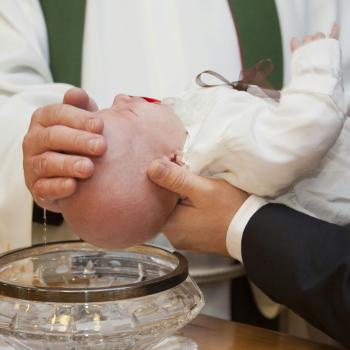Editors' Note: This article is part of the Public Square 2014 Summer Series: Conversations on Religious Trends. Read other perspectives from the Progressive Christian community here.
By the time I graduated from high school I had read the entire Bible from cover to cover. Four times. Once per year. In the church of my childhood, which was Presbyterian, but also a traditional, Korean immigrant gathering of families who had been in the country for a short time, it was knowledge of the Bible that was central to our identity formation as Christians. In good reformed, Protestant fashion, we submitted ourselves to the Bible as the sole authority on everything from community matters to tattoos to women's roles in the church and home.
I had my favorites. The drama of the Old Testament from Adam to Seth and Abel to Noah and the flood to Moses and the Red Sea—all the classics captured my imagination. I fell slightly in love, fan-girl style, with David the shepherd boy turned boy-king, and agonized with Samson at the betrayal of his love and loss of his own innocence. And then, there were the women. Everyone from Rebekah and Rachel and Leah, to Bathsheba, Vashti, and Esther, to Mary and Elizabeth and Mary Magdalene. The prophets and John the Baptist were fascinating people too—radicals and revolutionaries. And, of course there was Jesus, and the Bible felt like it could hardly be more true when it came to understanding ourselves in light of the Christ. There are so many characters that continue to speak into my life and give language to what is happening in my life today.
And yet, at the same time, the Bible was often an instrument of perpetuating the status quo. Whenever there was an inconsistency between real life and the real word found in the Bible, there was automatic default to the Bible. But not only the Bible. It was the authority, which was always given automatically to the interpreter of the Bible, which was the pastor, who was always male and usually Korean. And, when it came to matters that were questionable, the pat answer was, "Because the Bible says so." The Bible felt stale and irrelevant as the seemingly black-and-white answers from it stopped speaking to me. It wasn't until I went to college and was led in Bible study by an English Literature graduate student who taught me to approach the readings from literary theory that I began to see the Bible truly come alive. And then, it was during seminary, when I took cultural hermeneutics and learned of the realities of power and privilege, gender issues, and colonialism and imperialism that I saw the truly liberating power of these stories.
I came full circle. I haven't read the Bible cover to cover in a long time but it speaks to me in different ways now. The way I view authority is different too; I rely on the Holy Spirit to engage and provide meaning to a document that isn't limited by ink or paper or male voices any more. And I can say and sing a song of my childhood, with deep trust and belief:
Jesus loves me,
This I know,
For the Bible tells me so;
Little ones to Him belong;
They are weak, but He is strong.
Yes, Jesus loves me!
Yes, Jesus loves me!
Yes, Jesus loves me!
The Bible tells me so.
6/20/2014 4:00:00 AM




